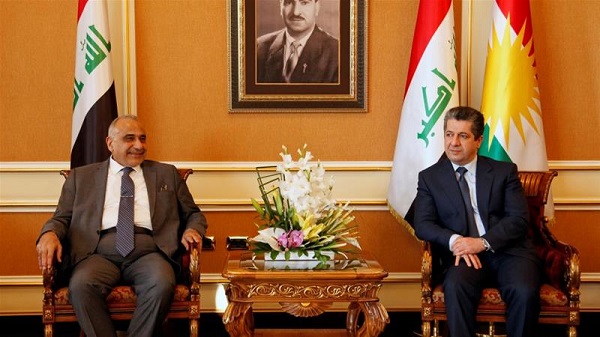Alwaght- Over the past few days, the central Iraqi government seriously raised cutting off the budget of the autonomous Kurdistan region north of the country. Following the publicity of the intention by Baghdad, a Kurdish delegation visited the capital Baghdad last week, led by the Kurdistan Regional Government’s Minister of Finance Awat Shiekh Janab, to discuss economic and trade relations as well as oil.
As evidence shows, the differences between Baghdad and Erbil are more serious than what the Kurdish leaders were thinking and Baghdad does not seem to have a plan to show flexibility and give the KRG a share from the federal budget.
What is causing these differences between the two sides and why does Baghdad want to sever the cash flow to Erbil? To find answers to these questions, we first need to throw light over the discord between Erbil and Baghdad. Then we follow the most important reasons behind Baghdad's decision to cut off the budget to the Kurdish administration.
Oil and budget myth
The disagreement over paying the KRG a share from the national budget does not originate from the near past. Rather it dates back to 2005, the year an official government in Iraq replaced Saddam Hussein dictatorship that was toppled by the US-led invasion of 2003.
In late 2013, the Iraqi government under Prime Minister Nouri al-Maliki in a striking decision cut the Erbil budget. This decision went into effect in early 2014. The cause of the al-Maliki’s move was clear: the PM accused Erbil leaders of signing oil production and sales contracts with foreign energy companies just against the national Iraqi constitution. They also were accused of not handing over the oil sales revenues to Baghdad, the seat of the national treasury and center of the federal income distribution.
After five years of deep division, finally, in 2018 a deal was struck when PM Adel Abdul Mahdi assumed the power in Baghdad. According to the deal, Baghdad agreed to make monthly pays to about half of the KRG state employees in return for the daily delivery of oil produced by the autonomous region. In the 2019 federal budget, the budget pay to Erbil was tied to the latter’s delivery of about 250,000 oil barrels per day. But now the central government argues that the Kurds have not adhered to their commitments made under the agreement.
Erbil disloyalty and OPEC oil agreement
In the present situation, the main reasoning by Baghdad to cut off Erbil’s budget is related to the KRG’s lack of commitment to handing over the agreed-upon oil amounts and also OPEC’s agreement on output cuts. The Kurdish region says that only 23 percent of the oil sales, equal to $60 million, was given to the finance ministry to pay the employee wages and the rest was spent to repay the debts. Baghdad argues that they failed to stand on their agreement promises. Moreover, according to an OPEC agreement, Iraq should cut its oil output. Baghdad asked the Kurdish region to reduce its oil production in accordance with the collective cap. In response, the KRG officials say they cannot reduce their production.
The results coming out of the Kurdish negotiations with Baghdad show that the Kurds have agreed to hand over the amounts of oil seen in 2019 for delivery to Baghdad in exchange for restoring their share from the federal budget. Baghdad has rejected the offer, asking for being given other revenues of the autonomous region. It argues that oil, especially now that it is cheap, cannot be met with pays to the Kurdish government employees. The only remedy for the KRG in the current conditions appears to be lying in handing over the gas produced in the northern region as well as half of the border crossings and customs revenues. This option still stands on the table, though they are yet to agree on it.
Resignation of Iraqi Finance Minister Fuad Hussein
Some sources suggest that the insistence by the Kurdistan Democratic Party (KDP) on stay of Finance Minister Fuad Hussein in his post is the origin of the current crisis between Erbil and Baghdad. Yousef Mohammad Sadeq, the head of the Change Movement in the Iraqi parliament, and Ghaleb Mohammad, a lawmaker from the same party, argue that the main drive behind cutting KRG’s budget is the stay of Hussein in his post. They say that Hussein once paid the autonomous region the budget just against the cabinet’s will. That is now motivating the Iraqi parties to press for his resignation.
Budget; a tool for pressure and political reckoning
From the viewpoint of the KDP leaders and mainly PM Masrour Barzani, the budget is a pressure instrument held by Baghdad for the political reckoning. The KDP believes that some parties and lawmakers representing the autonomous region in Baghdad who five years ago asked the central government to cut off the budget and employees' pays now are asking Baghdad to do the same. The essence is that Baghdad uses the budget instrumentally, as a political weapon to undermine Erbil and fuel discontent of the region’s residents with the KRG. To this aim, representatives of some Kurdish parties have teamed up with Baghdad.



























